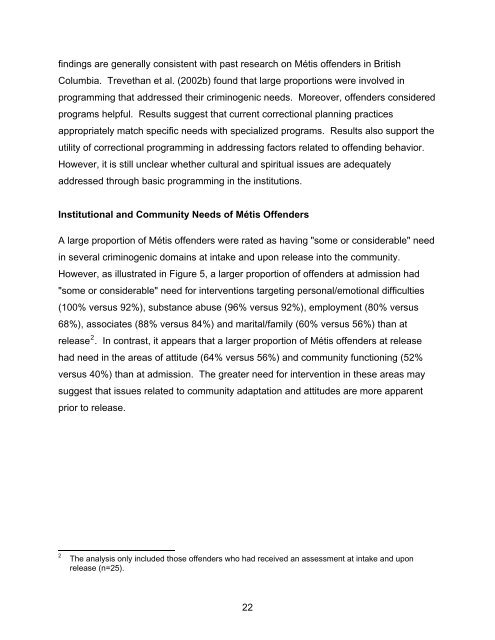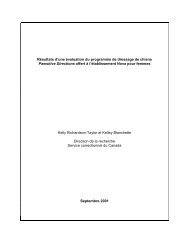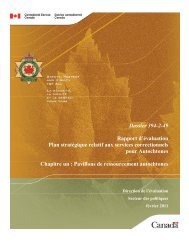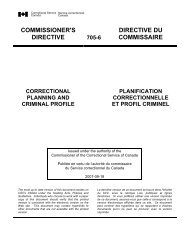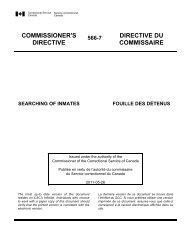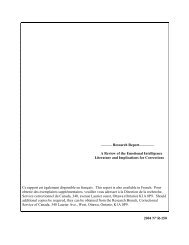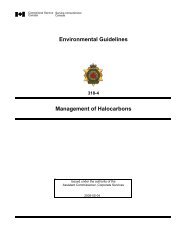Program and Service Needs of Federally Incarcerated Métis ...
Program and Service Needs of Federally Incarcerated Métis ...
Program and Service Needs of Federally Incarcerated Métis ...
Create successful ePaper yourself
Turn your PDF publications into a flip-book with our unique Google optimized e-Paper software.
findings are generally consistent with past research on <strong>Métis</strong> <strong>of</strong>fenders in British<br />
Columbia. Trevethan et al. (2002b) found that large proportions were involved in<br />
programming that addressed their criminogenic needs. Moreover, <strong>of</strong>fenders considered<br />
programs helpful. Results suggest that current correctional planning practices<br />
appropriately match specific needs with specialized programs. Results also support the<br />
utility <strong>of</strong> correctional programming in addressing factors related to <strong>of</strong>fending behavior.<br />
However, it is still unclear whether cultural <strong>and</strong> spiritual issues are adequately<br />
addressed through basic programming in the institutions.<br />
Institutional <strong>and</strong> Community <strong>Needs</strong> <strong>of</strong> <strong>Métis</strong> Offenders<br />
A large proportion <strong>of</strong> <strong>Métis</strong> <strong>of</strong>fenders were rated as having "some or considerable" need<br />
in several criminogenic domains at intake <strong>and</strong> upon release into the community.<br />
However, as illustrated in Figure 5, a larger proportion <strong>of</strong> <strong>of</strong>fenders at admission had<br />
"some or considerable" need for interventions targeting personal/emotional difficulties<br />
(100% versus 92%), substance abuse (96% versus 92%), employment (80% versus<br />
68%), associates (88% versus 84%) <strong>and</strong> marital/family (60% versus 56%) than at<br />
release 2 . In contrast, it appears that a larger proportion <strong>of</strong> <strong>Métis</strong> <strong>of</strong>fenders at release<br />
had need in the areas <strong>of</strong> attitude (64% versus 56%) <strong>and</strong> community functioning (52%<br />
versus 40%) than at admission. The greater need for intervention in these areas may<br />
suggest that issues related to community adaptation <strong>and</strong> attitudes are more apparent<br />
prior to release.<br />
2<br />
The analysis only included those <strong>of</strong>fenders who had received an assessment at intake <strong>and</strong> upon<br />
release (n=25).<br />
22


